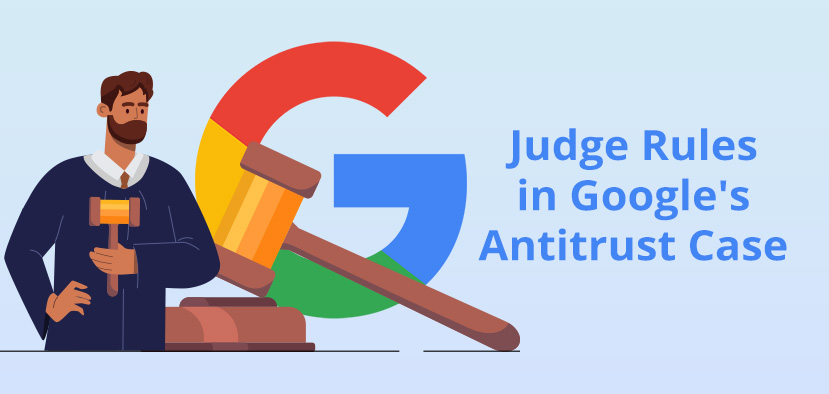Judge Rules in Google's Antitrust Case: A Major Blow for the Tech Giant
August 06, 2024
1 min 48 sec read
We've been keeping a close eye on the Google antitrust case, and now we finally have a verdict.
A federal judge has ruled that Google violated US antitrust laws by maintaining a monopoly in the search and advertising markets. This decision marks a significant victory for the Department of Justice (DOJ), which has been battling Google over its business practices.

Judge Amit Mehta concluded that Google is indeed a monopolist and has acted to preserve its dominance. According to the ruling, Google violated Section 2 of the Sherman Act, a key piece of antitrust legislation. The judge's decision is a huge win for the DOJ, although he didn't agree with all of the government's arguments. For instance, he dismissed claims that Google held monopoly power in a specific part of the ads market. However, he concurred that Google monopolizes "general search services" and "general search text advertising."
The implications of this ruling for Google's future are still uncertain. This initial finding addresses Google's responsibility but doesn't suggest any solutions. The next phase of the proceedings will determine the consequences, which could range from changes in business practices to a potential breakup of Google's search operations. Google has already announced plans to appeal the ruling, with Kent Walker, the company's president of global affairs, asserting that the decision unfairly restricts Google's ability to offer its search engine.
The DOJ's antitrust chief, Jonathan Kanter, hailed the decision as a landmark victory that holds Google accountable and paves the way for innovation. Meanwhile, DuckDuckGo, a competitor whose CEO testified against Google, welcomed the ruling but acknowledged that the fight isn't over. The sentiment is echoed by the broader tech community, which sees this as a critical step toward opening up the market to more competition.
Judge Mehta's ruling also rejected Google's defense of its contracts with companies like Apple. These agreements, he argued, disincentivize competitors from entering the market. The judge drew parallels between this case and the historic US v. Microsoft case, emphasizing that actions taken by a dominant player can be exclusionary, even if those same actions wouldn't be problematic for a smaller company.
The ruling highlighted Google's "remarkably durable" monopoly in general search, which grew from about 80% in 2009 to 90% by 2020. Mehta pointed out that genuine competition hasn't emerged, with Google's closest competitor, Bing, holding less than 6% of the market.
As we look ahead, the next antitrust trial between the DOJ and Google is scheduled for September 9th. This case will focus on whether Google has illegally monopolized digital advertising technology. This ongoing legal battle will undoubtedly shape the future landscape of the tech industry, and we'll be here to keep you updated on every twist and turn.
Want to read this in Spanish?
Spanish Version >>
